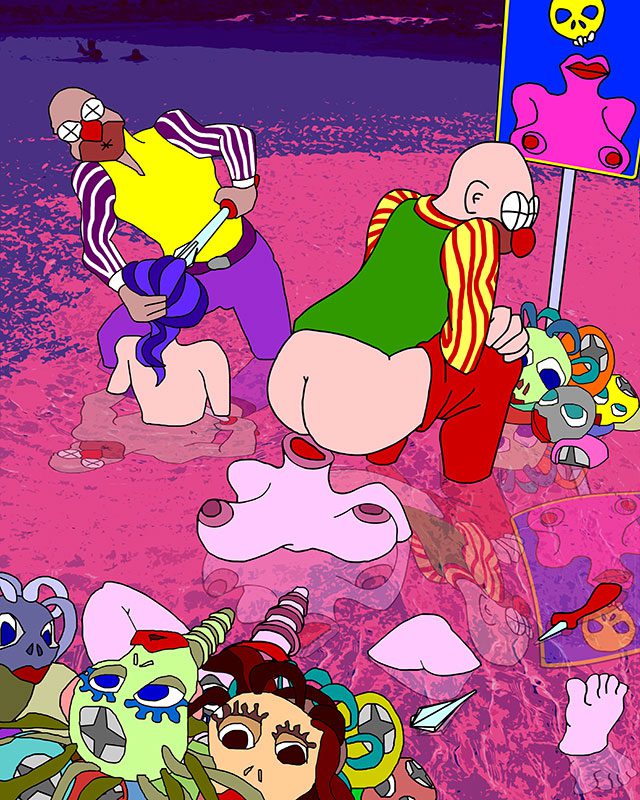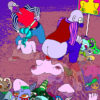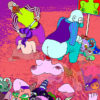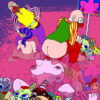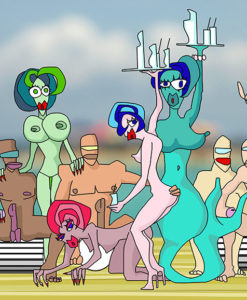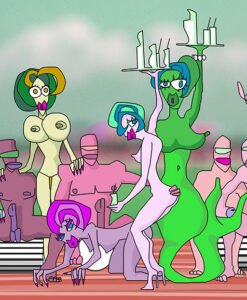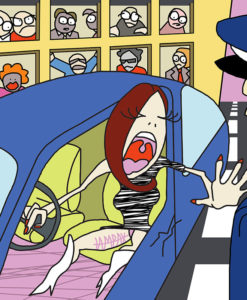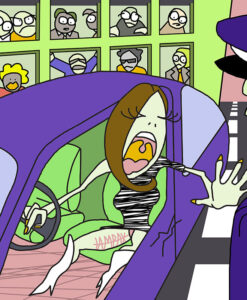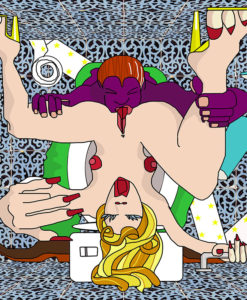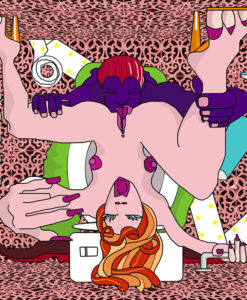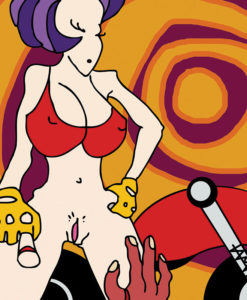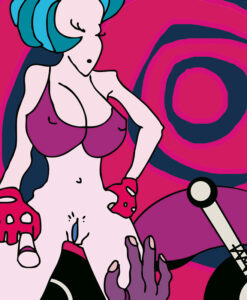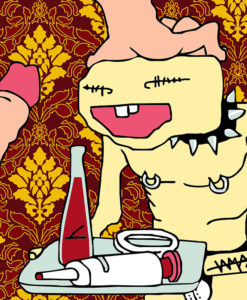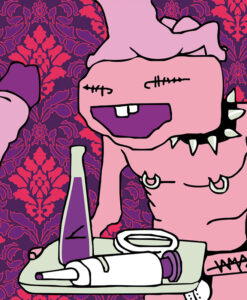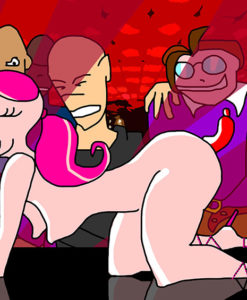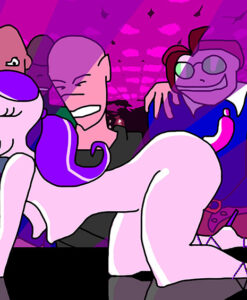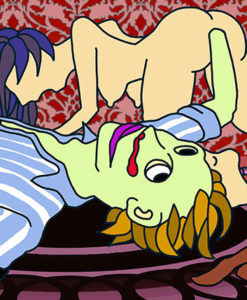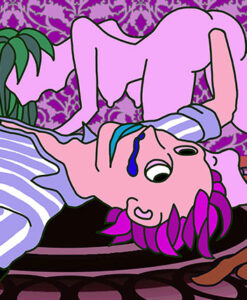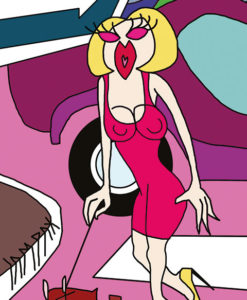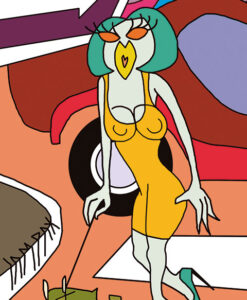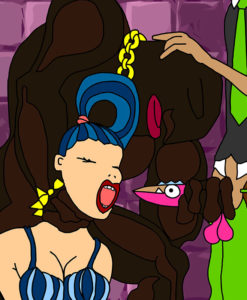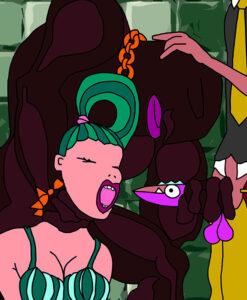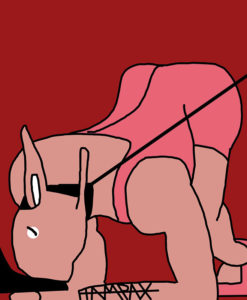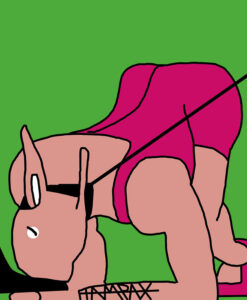PRINTS/Tampaxlove
SCREWDRIVER
Starting from 60,00€
Print on 220 grams premium photo paper. Six colors pigment inks.
Two clowns involved in the removal of the female head are intent on their work into one of the areas used as landfill. The portrait is taken by the operator while defecates the woman’s neck which has just unscrewed the head. the scene is surreal. there are references to places or historical periods.
The drawing was made on commission. The brief is to display in complete freedom the words of a famous film. “I’ll unscrew your head and jack down your neck” it is the phrase with which the corporal Sergeant Hartman addresses soldier “Jocker” in the famous film Full Metal Jacket.
Full Metal Jacket is a 1987 British-American war film directed and produced by Stanley Kubrick.
In 1967. During the Vietnam War, a group of new U.S. Marine Corps recruits arrive at Parris Island, South Carolina, for basic training. After having Their heads shaved, they meet Senior Drill Instructor Gunnery Sergeant Hartman, who employs forceful methods to turn the recruits into hardened, combat-ready Marines. Among the recruits are privates “Joker”, “Cowboy”, and the overweight, bumbling Leonard Lawrence, who earns the nickname “Gomer Pyle” after incurring Hartman’s wrath.
Kubrick contacted Michael Herr, author of the Vietnam War memoir Dispatches (1977), in the spring of 1980 to discuss working on a film about the Holocaust, but he eventually discarded that in favor of a film about the Vietnam War. They met in England, and the director told Herr that he wanted to do a war film but had yet to find a story to adapt. Kubrick discovered Gustav Hasford‘s novel The Short-Timers (1979) while reading the Virginia Kirkus Review. Herr received it in bound galleys and thought that it was a masterpiece. In 1982, Kubrick read the novel twice, concluding that it “was a unique, absolutely wonderful book”, and decided, along with Herr, to adapt it for his next film. According to Kubrick, he was drawn to the book’s dialogue, finding it “almost poetic in its carved-out, stark quality”. In 1983, Kubrick began conducting research for the film, watching past footage and documentaries, reading Vietnamese newspapers on microfilm from the Library of Congress, and studying hundreds of photographs from the era. Initially, Herr was not interested in revisiting his Vietnam War experiences, and Kubrick spent three years persuading him to participate in what the author describes as “a single phone call lasting three years, with interruptions

